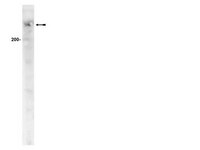Heparin-coated superparamagnetic nanoparticle-mediated adeno-associated virus delivery for enhancing cellular transduction.
Jun-Ho Hwang,Slgirim Lee,Eunmi Kim,Jung-Suk Kim,Chang-Ha Lee,Ik-Sung Ahn,Jae-Hyung Jang
International journal of pharmaceutics
421
2010
Mostra il sommario
Superparamagnetic iron oxide nanoparticles (SPIONs) have been exploited as an elegant vehicle to enhance gene delivery efficiencies in gene therapy applications. We developed a magnetically guided adeno-associated virus (AAV) delivery system for enhancing gene delivery to HEK293T and PC12 cell lines. Wild-type AAV2 and a novel AAV vector, AAVr3.45, which was directly evolved in a previous study to possess diverse cell tropisms, were used as gene carriers. Additionally, the affinity of each viral vector to heparin was employed as a moiety to immobilize virus onto heparin-coated SPIONs (HpNPs). Magnetically guided AAV delivery resulted fast and efficient cellular transduction. Importantly, a short exposure of virus to target cells under a magnetic field (<180min) yielded comparable transduction produced by the conventional gene-delivery protocol (i.e., 24h-incubation of virus with target cells prior to replacing with fresh medium). Additionally, magnetic guidance of AAV encoding nerve growth factor (NGF) produced sufficient functional NGF, leading to robust neurite elongation by PC12 as compared to direct NGF protein delivery or non-magnetic delivery. The successful establishment of a magnetically guided AAV delivery system, with the ability to efficiently and rapidly infect target cells, will provide a powerful platform for a variety of gene therapy applications. | 22016032
 |











